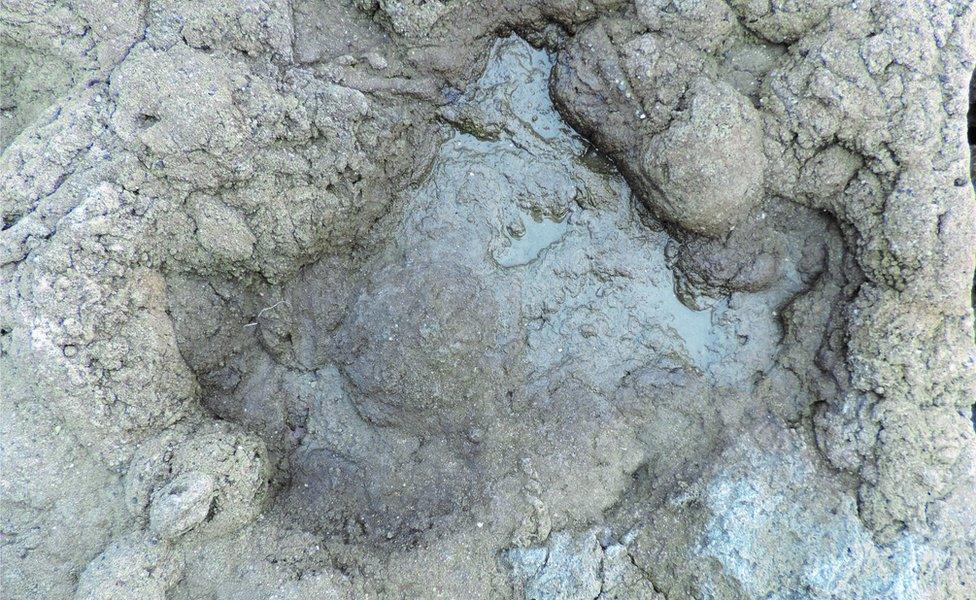Footprints of the last dinosaurs to walk in Britain found in Dover
- Published
- comments

This large footprint belonged to an ornithopod
Footprints of the last of the dinosaurs to have roamed the UK, over 110 million years ago, have been discovered close to the White Cliffs of Dover.
At least six different species' prints were found in the cliffs and nearby, after stormy conditions exposed new fossils.
They are believed to have been left behind by ankylosaurs, theropods, and ornithopods.
The fossils have been described as "quite an extraordinary discovery".
An artist's impression of the dinosaurs and their footprints
The discovery, made by Philip Hadland, a curator at Hastings Museum and Art Gallery, is the last record of dinosaurs in Britain and date from the Early Cretaceous period.
Mr Hadland said: "Back in 2011, I came across unusual impressions in the rock formation at Folkestone. All I could think was they might be footprints.
"This was at odds with what most geologists say about the rocks here, but I went looking for more footprints and as the tides revealed more by erosion, I found even better ones."
Phil Hadland discovered the footprints
Mr Hadland teamed up with experts at the University of Portsmouth to verify what he had found.
Professor of Palaeobiology David Martill said: "This is the first time dinosaur footprints have been found in strata known as the 'Folkestone Formation' and it's quite an extraordinary discovery.
"They were walking around close to where the white cliffs of Dover are now - next time you're on a ferry and you see those magnificent cliffs just imagine that."
A theropod (three-toed) print, from a flesh-eating dinosaur like the T-Rex
The largest footprint found, at 80cm wide and 65cm long, belonged to an Iguanodon-like dinosaur.
A track of multiple elephant-sized footprints, thought to be an Ornithopodichnus, was also discovered.
Some of the footprints are currently on display at Folkestone Museum.
Have you ever found something amazing when you've been out and about? Let us know what in the comments.
- Published25 January 2021
- Published1 February 2021
- Published2 May 2019
